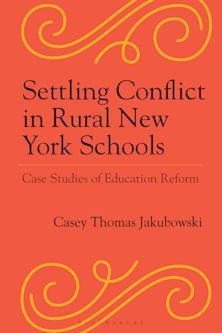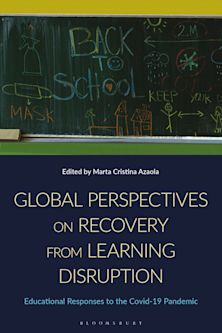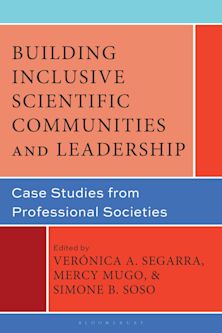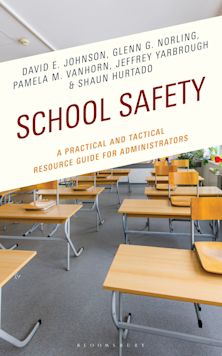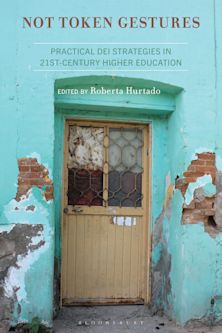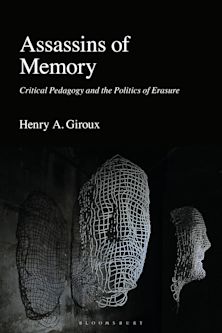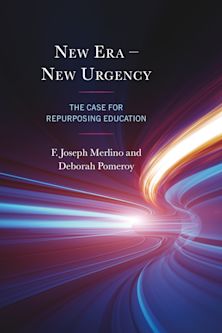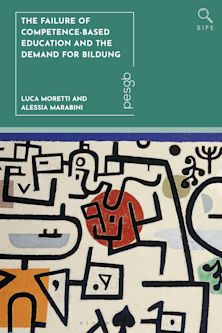- Home
- ACADEMIC
- Education
- Education Policy and Politics
- Teaching America
Teaching America
The Case for Civic Education
David J. Feith (Author) , Seth Andrew (Contributor) , Charles F. Bahmueller (Contributor) , Mark Bauerlein (Contributor) , John M. Bridgeland (Contributor) , Bruce Cole (Contributor) , Alan M. Dershowitz (Contributor) , Mike Feinberg (Contributor) , Senator Bob Graham (Contributor) , Chris Hand (Contributor) , Frederick M. Hess (Contributor) , Eugene W. Hickok, Jr. (Contributor) , Michael Kazin (Contributor) , Senator Jon Kyl (Contributor) , Jay P. Lefkowitz (Contributor) , Peter Levine (Contributor) , Harry Lewis (Contributor) , Justice Sandra Day O'Connor (Contributor) , Secretary Rod Paige (Contributor) , Charles N. Quigley (Contributor) , Admiral Mike Ratliff (Contributor) , Glenn Harlan Reynolds (Contributor) , Jason Ross (Contributor) , Andrew J. Rotherham (Contributor) , John R. Thelin (Contributor) , Juan Williams (Contributor)
Teaching America
The Case for Civic Education
David J. Feith (Author) , Seth Andrew (Contributor) , Charles F. Bahmueller (Contributor) , Mark Bauerlein (Contributor) , John M. Bridgeland (Contributor) , Bruce Cole (Contributor) , Alan M. Dershowitz (Contributor) , Mike Feinberg (Contributor) , Senator Bob Graham (Contributor) , Chris Hand (Contributor) , Frederick M. Hess (Contributor) , Eugene W. Hickok, Jr. (Contributor) , Michael Kazin (Contributor) , Senator Jon Kyl (Contributor) , Jay P. Lefkowitz (Contributor) , Peter Levine (Contributor) , Harry Lewis (Contributor) , Justice Sandra Day O'Connor (Contributor) , Secretary Rod Paige (Contributor) , Charles N. Quigley (Contributor) , Admiral Mike Ratliff (Contributor) , Glenn Harlan Reynolds (Contributor) , Jason Ross (Contributor) , Andrew J. Rotherham (Contributor) , John R. Thelin (Contributor) , Juan Williams (Contributor)
This product is usually dispatched within 1 week
- Delivery and returns info
-
Free CA delivery on orders $40 or over
You must sign in to add this item to your wishlist. Please sign in or create an account
Description
In Teaching America, more than 20 leading thinkers sound the alarm over a crisis in citizenship—and lay out a powerful agenda for reform. The book’s unprecedented roster of authors includes Justice Sandra Day O’Connor, Senator Jon Kyl, Senator Bob Graham, Secretary Rod Paige, Alan Dershowitz, Juan Williams, Glenn Reynolds, Michael Kazin, Frederick Hess, Andrew Rotherham, Mike Feinberg, Seth Andrew, Mark Bauerlein and more.
Their message: To remain America, our country has to give its kids a civic identity, an understanding of our constitutional system, and some appreciation of the amazing achievements of American self-government. But we are failing. Young Americans know little about the Bill of Rights, the democratic process, or the civil rights movement. Three of every four high school seniors aren’t proficient in civics, nine of ten can’t cut it in U.S. history, and the problem is only aggravated by universities' disregard for civic education. Such civic illiteracy weakens our common culture, disenfranchises would-be voters, and helps poison our politics.
Table of Contents
Introduction: Civic Education, Devalued
Part I: Making the Case
1. The Democratic Purpose of Education: From the Founders to Horace Mann to Today
2. Safeguarding American Exceptionalism: An Uninformed Citizenry Risks Ceding Excessive Power to Government
3.The Right to Know Your Rights: Civic Literacy, the Miranda Warnings, and Me
4. My Immigrant Tale: Assimilation and the Road to Success
Part II: From the White House to the Statehouse—Policymakers' Lessons Learned
5. Civic Nation: My White House Mission After 9/11
6. Civic Literacy and No Child Left Behind: A Lesson in the Limits of Government Power
7. A Failure of Leadership: The Duty of Politicians and Universities to Salvage Citizenship
8.Forgetting MLK's Dream: How Politics Threatens America's Civil Rights Memory
9. Revolutionary Ignorance: What Do Americans Know of the Original Tea Party?
10. Core Curriculum: How to Tackle General Illiteracy and Civic Illiteracy at the Same Time
Part III: In the Classroom—What Works, What Doesn't
11. Fighting Civic Malpractice: How a Harlem Charter School Network Closes the Civic Achievement Gap
12. The KIPP Approach: Be the Change You Wish to See in the World
13.The Wisdom of 20,000 Teachers: Strengthen State Requirements, Stop Marginalizing the Founders
14. Teaching Political Sophistication: On Self-Interest and the Common Good
Part IV: Among the Ivory Towers—Fighting Civic Neglect in Higher Education
15.Good History and Good Citizens: Howard Zinn, Woodrow Wilson, and the Historian's Purpose
16.Talk is Cheap: The University and the National Project, A History
17.Don't Believe the Hype: Young Voters Are Still Disengaged, and Universities Have Few Incentives to Fix It
18. Donor Intent: Strategic Philanthropy and Civic Education on Campus
Part V: A Vision for the Twenty-First Century
19. After the Digital Explosion: Education and the Threat to Civil Liberties in the Internet Age
20. How School Choice Enhances Civic Health: Vouchers and Informed Politics
21. Education vs. Indoctrination: What Separates Sound Policy from State Overreach?
22. Letter to President Obama: A Policy Approach for the Federal Government
Product details
| Published | Aug 11 2011 |
|---|---|
| Format | Hardback |
| Edition | 1st |
| Extent | 220 |
| ISBN | 9781607098409 |
| Imprint | R&L Education |
| Dimensions | 239 x 169 mm |
| Series | New Frontiers in Education |
| Publisher | Bloomsbury Publishing |
About the contributors
Reviews
-
The American experiment in self-governance relies on a citizenry conversant in American history and government process. Feith (assistant editorial features editor, Wall Street Journal) and his knowledgeable group of contributors-public officials, law and education scholars, and educators-sound the alarm with impressive clarity about the current state of American civic literacy. Their case is straightforward and without divisive rhetoric. The included essays explore the historical place of civic literacy within the American education system, look at current and past government programs intended to effect civic literacy, present snapshots of existing civic-education programs in K-12 and higher education, and consider options for the future. VerdictA well-documented case for civic-education reform articulated by policymakers, lawyers, educators, and academics who share their expertise and involvement with government programs and relevant curricula. This collection is distinctive for its breadth of coverage and the first-hand expertise and knowledge of its contributors. Highly recommended for students in education and teacher preparation.
Library Journal
-
David Feith, an assistant editorial features editor at the Wall Street Journal and twice recipient of the Robert L. Bartley Fellow at the Wall Street Journal, has brought together an esteemed group of seminal thinkers. These men and women substantially hold to the tenet that America has to give its children a sense of civic identity along with a fundamental understanding of our American constitutional system. The essays collected by Feith address several significant issues, including the democratic purpose of education, assimilation, leadership, civil liberties in the digital age, and indoctrination—all of which are of major concern. The mixture presents a whirlwind—no, a cyclonic vortex—of exemplary thought by Justice Sandra Day O’Connor, Juan Williams, Alan M. Dershowitz, Senators Jon Kyl and Bob Graham, Admiral Mike Ratliff, and Peter Levine—22 in all. Levine’s comment in his “Letter to President Obama” should make everyone stop and take notice....But Glenn Harlan Reynolds’s closing statement in the preceding essay, “Education vs. Indoctrination” is the real clincher.
New York Journal of Books
-
The past is critical to the future—a commonplace observation that would not be notable if the findings in this important book had turned out differently. As it is, Teaching America chronicles the nation’s civics deficit, arguing eloquently and sensibly for a renewed commitment to education about public life... This book and this project are excellent places to begin.
Jon Meacham, Pulitzer Prize-winning historian
-
We need to heed the voices in this essential book. If America is going to continue to be a powerful force for good in the world, we must repair our public education system and cultivate citizens that have the tools and ideals necessary to ensure the success of our great experiment in democracy. Teaching America tells us how.
Geoffrey Canada, president and CEO, Harlem Children's Zone
-
The greatest threat to the future of American democracy is our failure to educate every child. In Newark and cities across this country, the problems described in Teaching America are plain to see: inadequate civic education has left many students on the margins of our democracy, unable to benefit from or contribute to its wealth and growth. Fortunately, Teaching America offers a vital blueprint for how public leaders, educators, and parents can empower our students, help them realize their genius, and strengthen our nation.
Cory Booker, mayor of Newark
-
It's hard to think of a more important subject than the one this book tackles with such clarity, power, and creativity: how to preserve American history so that all we've been, and all we mean to be, will continue to hold us together as a nation. A generation ago, President Reagan warned of 'an eradication of the American memory that could result, ultimately, in an erosion of the American spirit.' This book both reflects and adds fresh documentation to that warning. And its great contribution is that it offers some bracing suggestions on what to do about it.
Peggy Noonan, Wall Street Journal columnist and former speechwriter for President Reagan












